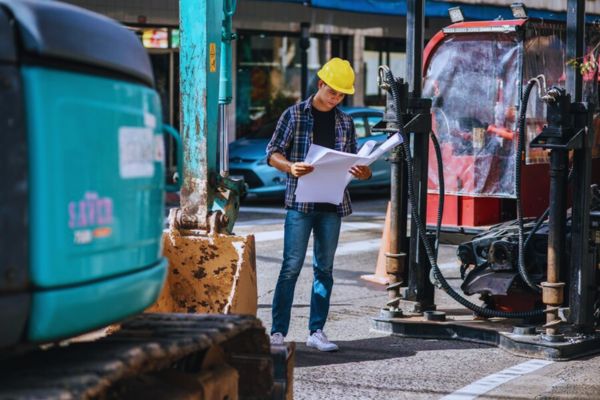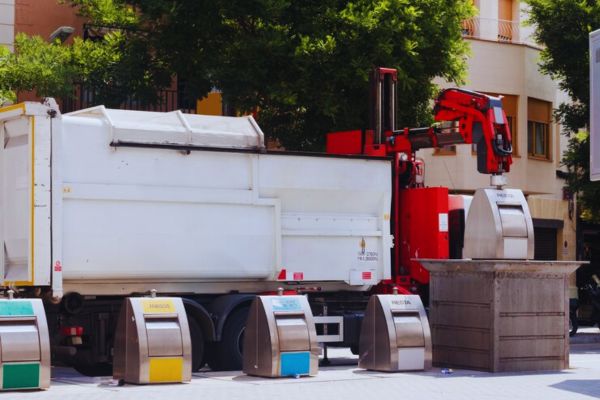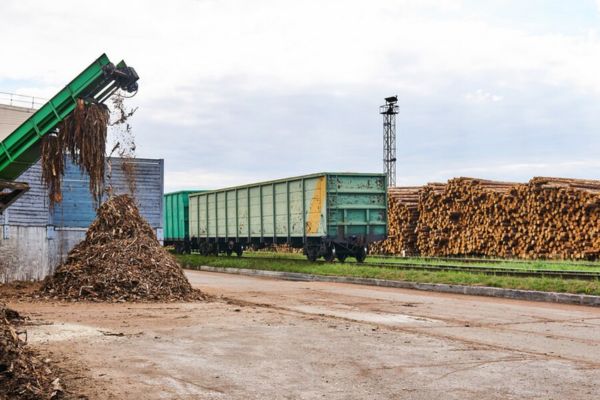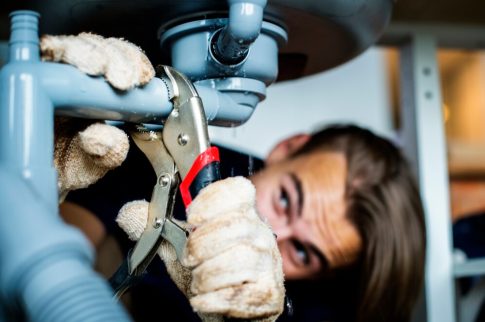Must-Read Tips for Hiring a Dumpster for Your Construction Site

Table Of Contents
Managing waste effectively on a construction site is crucial. Without a plan, debris can pile up quickly, creating chaos and slowing progress. That’s where you need to hire a dumpster for construction site.
In fact, it is one of the simplest ways to keep your site clean and organized. However, it is also important to understand a few things before you hire a dumpster for construction site.
Hence, to learn more about the factors to consider before hiring a dumpster for your construction site, read on to the end of the article.
Why Is a Dumpster for Construction Site Important?

Construction projects, big or small, generate waste—lots of it. The debris adds up faster than you might think, from concrete and wood to packaging materials.
Construction site dumpster hire keeps your site tidy, improves safety by reducing trip hazards, and helps streamline waste disposal. Moreover, it saves you from the hassle of hauling everything to the landfill yourself.
A clean site isn’t just about aesthetics; it’s about efficiency and compliance, too. Many local regulations require proper waste management, and a reliable dumpster service ensures you meet those standards.
Factors to Consider Before Hiring a Dumpster for Construction Site

The following are some of the major factors you must consider before hiring a dumpster for construction site:
1. Choosing the Right Size
First, you must consider how much waste you are dealing with. This will help you choose the dumpster size. Generally, dumpsters come in a variety of sizes, typically measured in cubic yards.
For instance, if you are handling a smaller renovation project, a 10-yard dumpster might do the trick. However, for larger projects like demolitions, you will need something bigger, like a 30- or 40-yard option.
Here’s a quick tip: going slightly larger than you think you’ll need is always better. For example, overflowing waste can lead to extra fees. Hence, having a bit of extra room is easier than managing an overfilled container.
2. Know What You Can and Can’t Dispose Of
You cannot throw everything into a dumpster. While most construction debris, like wood, concrete, and metals, is fair game, some items are restricted. For instance, hazardous materials, such as paint, asbestos, or certain chemicals, often require special handling. You just cannot simply toss it in.
Hence, before hiring a dumpster, ask the provider for a clear list of acceptable and prohibited items. This way, you can avoid surprises and it helps you plan for separate disposal if needed.
3. Placement: Think Accessibility
Where will the dumpster go? This might seem like a small detail, but it’s one of your most important decisions. Basically, you need to choose a spot that’s easy for workers to access but doesn’t block traffic or equipment.
However, if your dump site has limited space, communicate this with the rental company. They can guide you on placement and may offer smaller, more compact options.
If you work in a residential area, you may need a permit to place the dumpster on the street or sidewalk. Also, check local regulations before the dumpster arrives to avoid delays.
4. Plan for Pickup and Removal
Dumpsters don’t empty themselves. Consider how often you’ll need the waste removed when setting up your rental. For smaller projects, one-time pickup might be enough. However, ongoing construction may require scheduled removals to keep the site clear.
Many rental companies offer flexible pickup options. Therefore, discuss your project timeline with them. Consistent pickups can prevent delays caused by overflowing dumpsters.
5. Tips for Saving Money
Dumpster rentals can add up, especially for long-term projects. But there are ways to save without sacrificing quality.
- Compare rates – Different providers charge differently, so shop around.
- Know your weight limits – Exceeding the weight allowance can lead to extra fees.
- Minimize airspace – Break down large items to maximize the dumpster’s capacity.
- Combine waste – If possible, consolidate waste from multiple sites to reduce the need for extra dumpsters.
Being strategic can help you stick to your budget while still keeping the site organized.
6. Working With a Reputable Provider
The company you choose for your dumpster rental matters. Look for a provider with clear terms, transparent pricing, and good customer service.
Don’t make haste and do not hesitate to ask: What’s included in the rental cost? Are there any hidden fees? Can they accommodate last-minute changes to your schedule?
Also, reading reviews and getting recommendations can also point you in the right direction. Basically, a good dumpster lender is a partner in keeping your project running smoothly, so take the time to find the right fit.
7. Avoid Common Pitfalls
Hiring a dumpster might seem straightforward, but a few common mistakes can complicate the process. Hence, avoid the following issues by planning ahead:
- Underestimating the size – Always choose a size slightly larger than your estimate.
- Ignoring weight limits – Overloading the dumpster can lead to hefty fines.
- Improper placement – Place the dumpster where it won’t block equipment or create safety hazards.
- Failing to check restrictions – Know what’s allowed before you start loading.
With a bit of preparation, you can sidestep these problems and keep your project running smoothly.
8. Think About Sustainability
Construction projects produce a significant amount of waste, but not all of it has to go to the landfill. For instance, many dumpster services offer recycling options, helping you reduce your environmental impact. Ask your provider if they sort recyclables or if there are separate dumpsters for materials like metal, wood, or concrete.
Taking a sustainable approach is working towards the greater good for the planet. Also, it can enhance your project’s reputation and compliance with green building standards.
Final Thoughts
Hiring a dumpster might not be the most glamorous part of your construction project, but it’s one of the most essential. You can keep your site clean, safe, and efficient by choosing the right size, understanding disposal rules, and working with a reliable provider. A little planning goes a long way, so take the time to set up a system that works for your needs.
Do you have more suggestions on how to hire a dumpster for construction site? Please share your ideas and opinions in the comments section below.
Read Next..
You May Also Like

February 9, 2024
What, Who, Why: The Ultimate Guide to Commercial Movers

February 1, 2024























